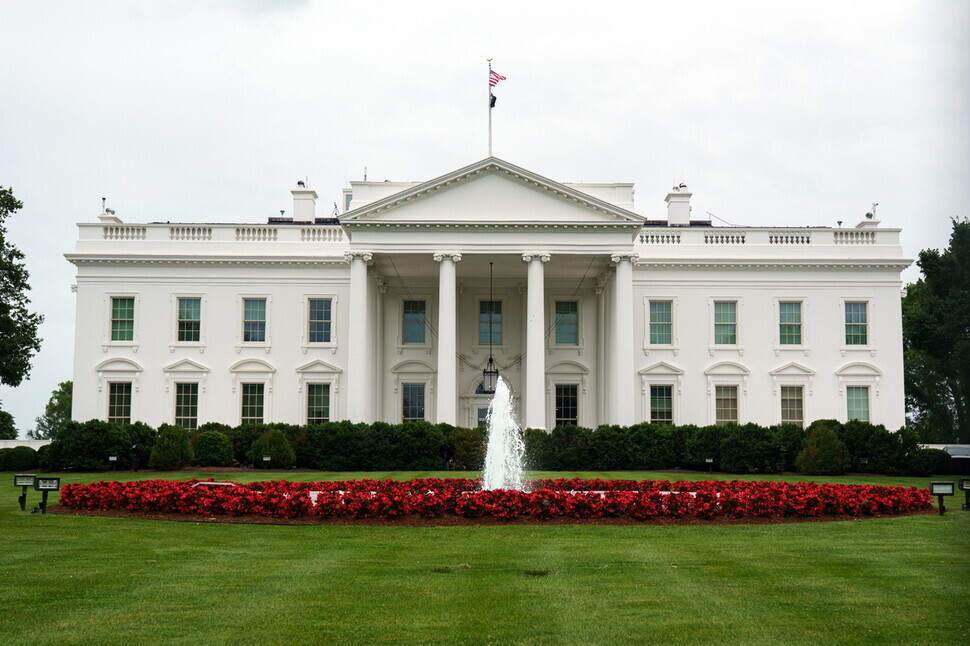
U.S. media outlets have reported that the Donald Trump administration has instructed U.S. embassies worldwide to completely suspend new interviews for student visas. This is interpreted as a preliminary measure to significantly strengthen the review process for future student visa applicants. The sudden directive has caused significant confusion among Korean students preparing to study in the United States.
State Department Orders "Suspension of Additional Interview Scheduling"… Stronger Social Media Screening Anticipated
According to major U.S. media outlets including Politico and NBC, the U.S. Department of State sent a cable to U.S. embassies worldwide on the 27th local time, instructing them to "cease scheduling any additional student and exchange visitor visa (F, M, J) interviews and await further guidance expected in a few days." The cable also included a note stating that "guidance for social media screening for all student and exchange visitor visa applicants will be provided soon," clearly indicating the intent to strengthen student visa screening. However, the State Department did allow already scheduled interviews to proceed normally.
This measure is interpreted as an extension of two executive orders already in effect under the Trump administration: "Measures to protect the United States from foreign terrorists and national security threats" and "Additional measures to combat antisemitism." Previously, certain student and exchange visitor visa applications were sent to a dedicated anti-fraud unit, and social media checks were mandatory. This new directive expands these measures even further. Attention is particularly drawn to the background of this move, as it comes at a time when the Trump administration is broadly pressuring U.S. universities, including Harvard, under the pretext of "promoting antisemitism."
Unclear Scope of Social Media Screening… Korean Students Anxious
It is still unclear exactly how the expanded social media screening will be conducted. Axios reported that "applicants' posts, shared content, and comments on various platforms such as Instagram, X (formerly Twitter), and TikTok will be reviewed." This is interpreted as an intention to extensively examine applicants' overall online activities, which could raise concerns about privacy infringement.
On the 28th, posts began to appear in student online communities stating that no available dates were displayed for scheduling visa interviews for U.S. study, increasing the confusion. However, the U.S. Embassy in Korea maintained a general stance, stating that "interviews are still ongoing." An embassy official added that "the State Department's visa interview scheduling is fluid" and that "visa applicants can continue to submit applications, but schedules are continuously adjusted to ensure sufficient time for review." This is interpreted as a cautious position given that new interview scheduling has virtually ceased, yet there has been no official announcement from the U.S. State Department.
Strengthened U.S. Visa Screening: A Reflection of Trump's Second Term Policy Stance?
This directive to suspend new student visa interviews is analyzed as a signal of President Donald Trump's immigration and visa policy stance, amidst speculation about his potential return to power. During his previous term, President Donald Trump pursued strengthened crackdowns on undocumented immigrants and stricter visa issuance reviews. He notably promoted an "America First" policy, aiming to restrict foreign entry under the pretext of protecting domestic jobs and national security.
While the strengthening of student visa screening is ostensibly based on preventing national security threats and combating antisemitism, there may be an underlying economic motive: restricting post-graduation employment in the U.S. for international students, i.e., prioritizing domestic employment. U.S. universities often rely on high tuition fees from international students to fund their operations, leading to strong concerns about such policy changes. A decrease in the influx of international students could lead to financial difficulties for U.S. universities and, in the long term, could result in a weakening of academic diversity and international competitiveness in the U.S.
Furthermore, the strengthened social media screening could spark controversy over U.S. government data collection and surveillance. There is also a possibility that the process of reviewing visa applicants' social media activities could devolve into ideological vetting, potentially leading to criticism for infringing on freedom of expression.
As a result of this measure, aspiring students from Korea and around the world who plan to study in the U.S. are now in a position where they must re-evaluate their visa application strategies amid uncertainty. If visa issuance becomes more difficult, an increasing number of students may shift their study abroad plans to other countries, which is expected to have a significant impact on the global international student market. All eyes are on what the U.S. Department of State's subsequent guidance will contain and what changes it will bring to the U.S. study abroad market.
[Copyright (c) Global Economic Times. All Rights Reserved.]




























